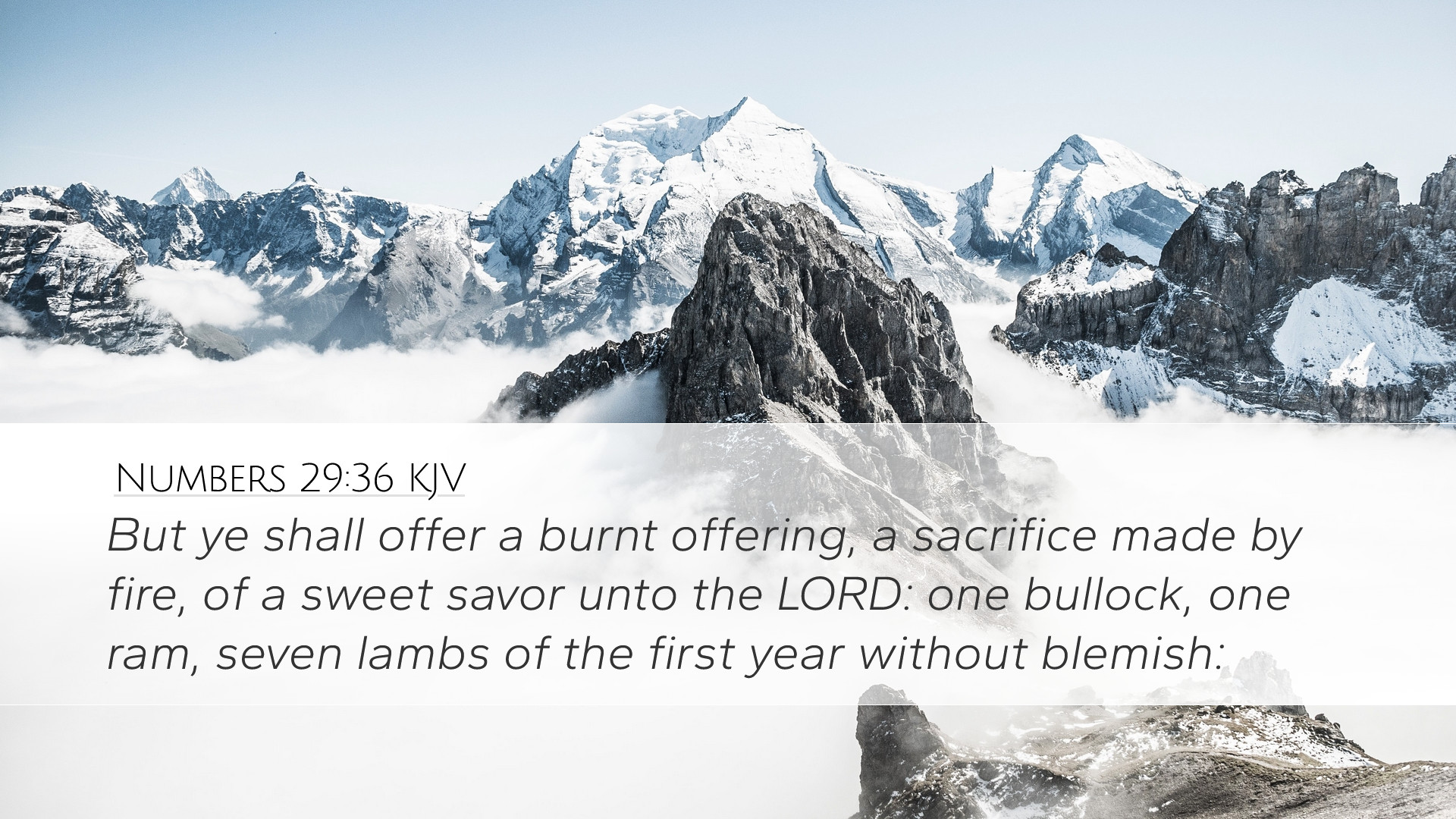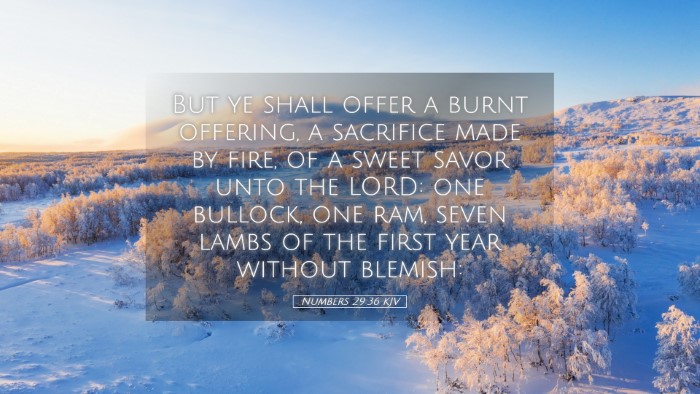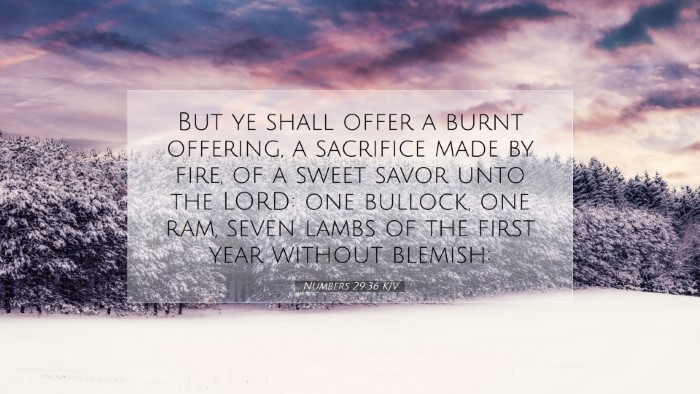Commentary on Numbers 29:36
Numbers 29:36 states, "And on the seventh day you shall have a holy convocation; you shall do no work on it; it is the feast of booths." This verse is situated within the context of the Israelites' festival calendar, specifically during the observance of the Feast of Tabernacles (Sukkot), which commemorates the Israelites' journey in the wilderness and God's provision.
Context and Significance
The significance of the Feast of Tabernacles is evident as it aligns with God's commandments regarding the observance of religious feasts. The people were to gather for a holy convocation, highlighting the communal aspect of worship. This reflects both a time of joy and reflection, celebrating God's faithfulness and provision.
Insights from Matthew Henry
Matthew Henry emphasizes the sacred nature of the day, indicating that it served as a reminder to the Israelites of their temporary dwelling during the Exodus. He notes that such a convocation is not merely a gathering but a set-apart time for the meeting of God's people in worship. Henry stresses that the prohibition of work underscores the importance of dedicating time fully to spiritual matters, away from the regular demands of life.
Insights from Albert Barnes
Albert Barnes points out that the Feast of Tabernacles was also a season of rejoicing. The seventh day, in particular, was meant to be a pinnacle of celebration, emphasizing the joy of being in God's presence. He notes the significance of the command to abstain from work, reflecting the principle of rest and reflection which is foundational to a life of worship. It stands as a reminder that the needs of our spiritual life often require intentional pauses from our worldly activities.
Insights from Adam Clarke
Adam Clarke provides a detailed exposition of the symbolism behind the convocation. He interprets the "holy convocation" as a foreshadowing of the ultimate fulfillment in Christ, where believers are called to gather and worship collectively. Clarke highlights the spiritual implications of the festival, explaining that it serves as a type of the final harvest and the great gathering of God's people. The abstention from work symbolizes the need for believers to cease from their labors to actively seek communion with God.
Theological Implications
The inclusion of a holy convocation on the seventh day introduces several theological themes deserving further exploration:
- Covenantal Community: The gathering reflects the covenant community structure that God instituted with Israel and continues in the New Testament church.
- Divine Provision: Both the feasts and the rest serve as reminders of God's ongoing provision for His people, calling for gratitude and dependency on His grace.
- The Principle of Rest: The command serves as a reminder for modern believers about the importance of rest in a busy world, promoting spiritual rejuvenation.
- Joy in Worship: The festival's emphasis on joy encapsulates the essence of worship: it is not merely a duty, but an expression of happiness in God's providence.
Application for Today
The principles derived from Numbers 29:36 can be applied to the lives of believers today. Churches are encouraged to prioritize gatherings that focus on worship and community, reflecting the ancient practice of setting apart times for holy convocation. The command to refrain from work is a powerful admonition to modern Christians to actively cultivate their spiritual lives through rest, prayer, and community.
Conclusion
Numbers 29:36 serves as an important reminder of God's call to His people to gather for worship, reflect on His provisions, and celebrate their relationship with Him. By integrating the insights from Matthew Henry, Albert Barnes, and Adam Clarke, we gain a richer understanding of the text's nuances and its enduring relevance for the church today. Through this verse, believers are encouraged to embrace communal worship, rest in God's presence, and celebrate His faithfulness.


